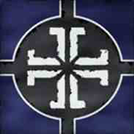|
|
| Line 1: |
Line 1: |
| In economics, factors of production are resources used in the production of goods and services.
| | {{Sitenav|Resources}} |
|
| |
|
| *Land or natural resource – naturally-occurring goods such as soil and minerals that are used in the creation of products. The payment for land is rent.
| | Resources are the life blood of each faction, allowing them to [[Research]] and build [[Structures]] and [[Vehicles]]. Depending on the [[Maps|map]] and the [[Gameplay_Types|game mode]], resources are earned by building [[Refinery|Refineries]] on [[Resource Node|Resource Nodes]] or by completing certain objectives. |
| *Labor – human effort used in production which also includes technical and marketing expertise. The payment for labor is a wage.
| |
| *Capital goods – human-made goods (or means of production) which are used in the production of other goods. These include machinery, tools and buildings. In a general sense, the payment for capital is called interest.
| |
|
| |
|
| The income received by the owners of these factors equals the amount of aggregate supply. These were codified originally in the analyzes of Adam Smith, 1776, David Ricardo, 1817, and the later contributions of Karl Marx and John Stuart Mill as part of one of the first coherent theories of production in political economy. Marx refers in Das Kapital to the three factors of production as the "holy trinity" of political economy.
| | {{See|[[Maps]], [[Resource Node]]}} |
| | |
| Free trade laissez faire theory argues that economic efficiency is achieved in cases where free movement (laissez passer) of the "factors of production" is permitted. Karl Polanyi in "The Great Transformation", however, demonstrated that historically whenever laissez faire policies are adopted, legal moves to prevent the free movement of one of the factors of production always occur (for example current neo-liberal attempts to free the movement of capital and resources are today increasingly tied to immigration controls).
| |
| | |
| In the classical analysis, working capital was generally viewed as being a stock of physical items such as tools, buildings and machinery. This view was explicitly rejected by Marx. Modern economics has become increasingly uncertain about how to define and theorise capital (see capital controversy).
| |
Revision as of 16:50, 9 February 2007
Home > Resources
Resources are the life blood of each faction, allowing them to Research and build Structures and Vehicles. Depending on the map and the game mode, resources are earned by building Refineries on Resource Nodes or by completing certain objectives.

